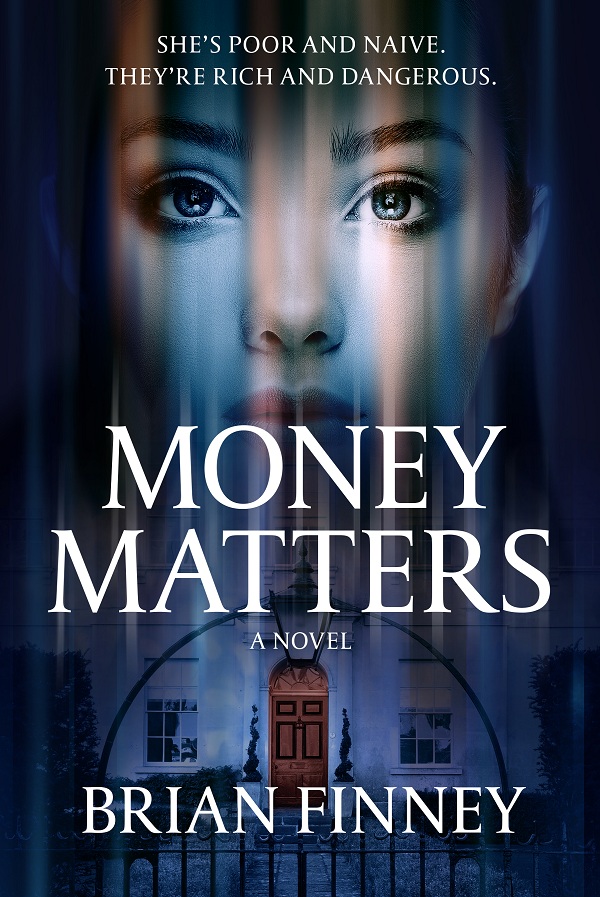Tell us a little about Money Matters.
The main story is narrated by its protagonist Jenny, 27-years-old and a little lost in life. She is still just getting by with two part-time jobs. Asked to look into the disappearance of the CEO’s girlfriend, Jenny reluctantly turns amateur detective and soon finds herself up against a range of powerful and sinister forces, including big money, a corrupt politician, and a Mexican drug cartel.
So the novel is part (late) coming-of-age, part amateur sleuth, part social issues. Immigration, one such issue, permeates both the main plot and a subplot featuring an undocumented young Mexican-American. Jenny’s search leads to her meeting the young, handsome director of an immigrants’ rights organization to whom she is strongly attracted. So the novel also has elements of romance.
Are parts of the novel based on real life?
The novel covers six days surrounding the mid-term election of 2010. Jenny hears real election news on the car radio as she pursues her investigation. The Democratic nominee for California governor is the same as in real life – Jerry Brown. Instead of Meg Whitman, the Republican nominee, I have substituted the brother of a CEO for whom Jenny works. Still, like Whitman, he runs on an anti-illegal immigrant platform, and like her, he is outed for employing an undocumented Mexican immigrant. The remaining characters are products of my imagination. However, the setting in Venice Beach and LA is how it was in 2010.
Did your nonfiction writing experience help you write Money Matters?
Yes, it did. Even when I was writing for academic publishers, I cultivated a colloquial manner of speech. I also learned from my earlier work, especially the award-winning biography of Christopher Isherwood and my last work of nonfiction Terrorized, how to research material. A novel set in the immediate past requires a surprising amount of research – into localities, dress styles, election issues, immigration legislation, and ICE procedures, Mexican gang history and operations, hedge fund reporting—I could go on. It is important to be able to uncover the material you want speedily to avoid losing track in your head of the narrative thread.
Who are some authors in your genre who inspire you?
I will confine myself to one novel by each author:
The Thin Man, Dashiell Hammett’s last published novel, about a former detective and his wife drawn reluctantly into an investigation set in New York during the era of Prohibition.
An Unsuitable Job for a Woman, P. D. James’ novel in which a twenty-two-year-old woman inherits a failing detective agency and takes on her first case, the mysterious death of the son of a famous scientist.
The Girl with the Dragon Tattoo, Stieg Larsson’s first novel in the Millennium series. In it, a small-time publisher and an eccentric young woman computer hacker join forces to expose a long history of sexual abuse and serial murder.
Winter’s Bone, Daniel Woodrell’s “country noir” novel set like most of his nine novels in the Missouri Ozarks. A sixteen-year-old daughter has to locate her missing father before the family loses their house as bail forfeited. Like Jenny in my book, the young female protagonist discovers unknown depths in herself in the course of the novel.
How would you define your novel writing style?
The style is intended to be informal, close to conversational. In fact, it contains a lot of dialogue which came naturally to me (I wrote a screenplay years ago). At the same time, Jenny, my narrator, has a college education and a reasonably extensive vocabulary as well as an inquiring mind. Jenny’s voice came to me readily, but I had some difficulty (and plenty of help from readers of early drafts) with eliminating English expressions as I had spent the first half of my life in England. I believe I have succeeded in reproducing the mind and voice of a twenty-seven-year-old woman born and raised in Los Angeles, where I have lived now for over thirty years.
What experience (if any) did you have when you were younger that made you realize the power of the written word?
During my teens I lived with my stepmother, who was very jealous of me and gave me a hard time. Ironically I took refuge from her by reading through her vast collection of novels. As soon as I opened the first page, all my doubts and anger evaporated as I entered another captivating fictional world.
How can readers find out more about you and your work?
I have a very informative website with all the latest news about Money Matters: www.bhfinney.com.
I also have an author’s presence on Amazon: https://www.amazon.com/s?k=Brian+finney&i=stripbooks&ref=nb_sb_noss_2
and Goodreads:
https://www.goodreads.com/author/dashboard?al_user=51689616-brian-finney&utm_medium=email&utm_source=grant_author





